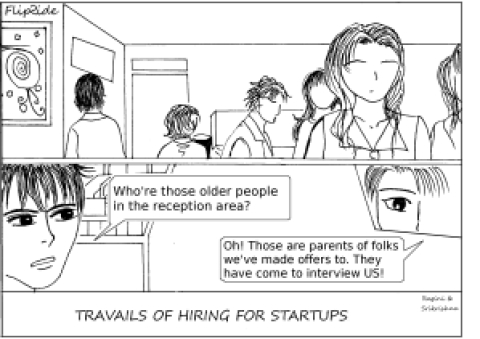“Capture the stories you already tell. “
This is one of the first exercises we ask students in our course—Personal Success through Persuasive Storytelling to do.
This creates a variety of interesting responses. There’s always the one person who immediately begins jotting down all the stories they tell—be that at work, at a party, wedding or reunion.
Then there’s the person who can’t recall a single story that they tell. And of course most folks fall somewhere in between.
I find myself telling three or four three kinds of stories. These include those
- from my own experiences and idiocy as an entrepreneur,
- of young (& not so young) entrepreneurs that I mentor/encounter
- I’ve learnt as the parent of two young women and
- that I’ve heard others tell—primarily my father and business partners
Though my father passed in 2011, my appreciation and understanding of him has only grown—primarily as his stories keep popping out of my mouth.
While many stories my father told were situated firmly at work or around business interactions, the occasional personal stories he shared, usually with a life lesson, have always been special. One particular story of his experience as 17 or 18-year old apprentice in Shimla, was the cause of much ribbing by his kids for the rest of his life.
My father came to the city—Chennai as a 16-year old, two years after he lost his father. An uncle who he’d hoped would help him go to college didn’t do so. With a widowed mother, younger sister to be married and two younger brothers still in school, he felt he had little or no options.
So he “ran away” (only his mother knew) to New Delhi. There a couple of friends he’d made in Chennai helped him get work as an apprentice at an accounting firm, they worked at.
One month the three friends were sent to Shimla, to conduct the quarterly audit at client’s offices. Shimla, set in the foothills of the Himalayas was the summer capital for the Brits (who were still running India in 1945/6). Once they day’s work was done, the three young men (boys?) would hang out at The Mall, what Wikipedia quaintly calls a pedestrian avenue. ie the main drag!
As my father tells it, one evening a young woman walked up to them, grabbed my father’s friend‘s hand, and declared, “Marry me!”
Keep in mind this is 1945 or 46. If this happened even today in 2024, it would be a scandal. So as you can imagine my father and his friends were flabbergasted. One of them squeaked out, “What do you mean?”
“Well, I’ve seen you here everyday staring at me,” she said. “So if you like me so much, you should then marry me!”
My father’s friend was so mortified, that he could barely get his hand free and run away as fast as he could. My father and his other friend ran after him, and never again did they hang out at The Mall.
At this point in the story, one of us—sure if it was my mom or one of my sisters asked, “Was it really your friend’s hand she grabbed or yours?
My dad gave an enigmatic smile and said no more. From then on, whenever my dad narrated a story, we all ribbed my father with “And, this happened to your friend?”
Now every time I tell a story, my daughters ask me the question, “And, this happened to your friend?” So the story and traditions continue.
My father would have turned 95 earlier this week. I miss your stories, dad!












You must be logged in to post a comment.